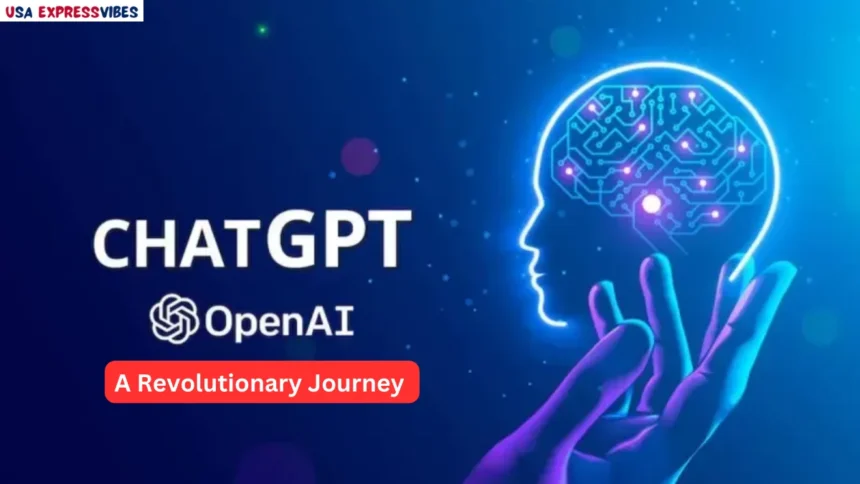Unlocking the Power of ChatGPT: Navigating the Realm of Artificial Intelligence with Ethics and Innovation
In the realm of artificial intelligence, ChatGPT has emerged as a revolutionary tool, captivating the imagination of individuals and industries alike. Developed by OpenAI, ChatGPT represents a milestone in the evolution of generative AI, offering a myriad of applications across various domains. This article aims to provide a detailed overview of ChatGPT, exploring its origin, functionality, applications, limitations, societal impact, and future outlook.

Origin of ChatGPT
ChatGPT’s journey began as a research project aimed at advancing the capabilities of generative AI models. Leveraging the transformative power of large language models (LLMs), OpenAI developed ChatGPT based on the foundation laid by Google’s transformers technology. Through extensive training on vast amounts of text data, including books, articles, and online content, ChatGPT was equipped with the ability to understand and generate human-like responses.
Functionality of ChatGPT
ChatGPT operates as an online chatbot that responds to text prompts provided by users. Its functionality extends beyond simple interactions, as it can perform a wide range of tasks, including providing information, generating creative content, assisting with technical tasks, and even coding. Utilizing its generative AI capabilities, ChatGPT can produce coherent and contextually relevant responses across various domains.
Applications of ChatGPT
The versatility of ChatGPT enables a multitude of applications across different industries and sectors. In healthcare, it shows potential in medical education and clinical decision-making support. In education, it assists students with learning tasks and provides personalized tutoring. In software development, it aids programmers in coding and project management. Moreover, ChatGPT finds applications in content creation, customer service, creative writing, and more.
Limitations of ChatGPT
Despite its remarkable capabilities, ChatGPT is not without limitations. One significant challenge is the occurrence of “hallucinations,” where the model generates plausible but inaccurate information. This poses risks in contexts where factual accuracy is crucial, such as medical diagnosis or legal documentation. Additionally, ChatGPT’s responses may reflect biases present in the training data, raising concerns about fairness and equity.
Societal Impact of ChatGPT
The widespread adoption of ChatGPT and similar AI technologies has profound societal implications. On one hand, it offers opportunities for innovation, productivity enhancement, and accessibility. On the other hand, it raises concerns about job displacement, ethical use, and the democratization of information. As AI continues to permeate various aspects of society, it necessitates careful consideration of its impact on individuals, communities, and institutions.
Evolution of ChatGPT
Since its inception, ChatGPT has undergone continuous evolution and refinement. OpenAI regularly updates the model to improve its performance, address vulnerabilities, and enhance its understanding of complex contexts. The introduction of newer versions, such as GPT-4 Turbo, signifies the ongoing progress in AI research and development.
Challenges and Considerations
One of the primary challenges facing ChatGPT is mitigating the risk of hallucinations and ensuring the accuracy of its responses. This requires advancements in natural language understanding, fact-checking mechanisms, and ethical guidelines for AI development. Moreover, considerations regarding data privacy, algorithmic transparency, and accountability are essential for fostering responsible AI use.
Ethical and Responsible Use
Ethical considerations are paramount in the deployment of ChatGPT and similar AI technologies. Responsible use entails safeguarding against harmful applications, promoting transparency in AI decision-making, and mitigating biases and discrimination. Furthermore, it necessitates collaboration among stakeholders, including developers, policymakers, educators, and the public, to establish ethical frameworks and guidelines.
Future Outlook
Looking ahead, the future of ChatGPT holds promise and challenges alike. As AI technologies continue to advance, ChatGPT’s capabilities may expand to encompass more sophisticated tasks and domains. However, addressing issues such as hallucinations, biases, and ethical concerns remains imperative for realizing the full potential of AI in a responsible and inclusive manner.
Final Thought:
In summary, ChatGPT represents a groundbreaking advancement in AI technology, offering a glimpse into the transformative potential of generative language models. Its origin, functionality, applications, limitations, societal impact, and future outlook underscore the complex interplay between technological innovation and ethical considerations. As we navigate the evolving landscape of AI, it is essential to approach the development and deployment of ChatGPT with a commitment to responsible and ethical use, ensuring that it serves as a force for positive societal change.
Visit USAExpressvibes.com for the Latest News, Reviews, Entertainment insights and more Updates. Follow us on Telegram and Facebook as well to ensure you never miss a beat!








